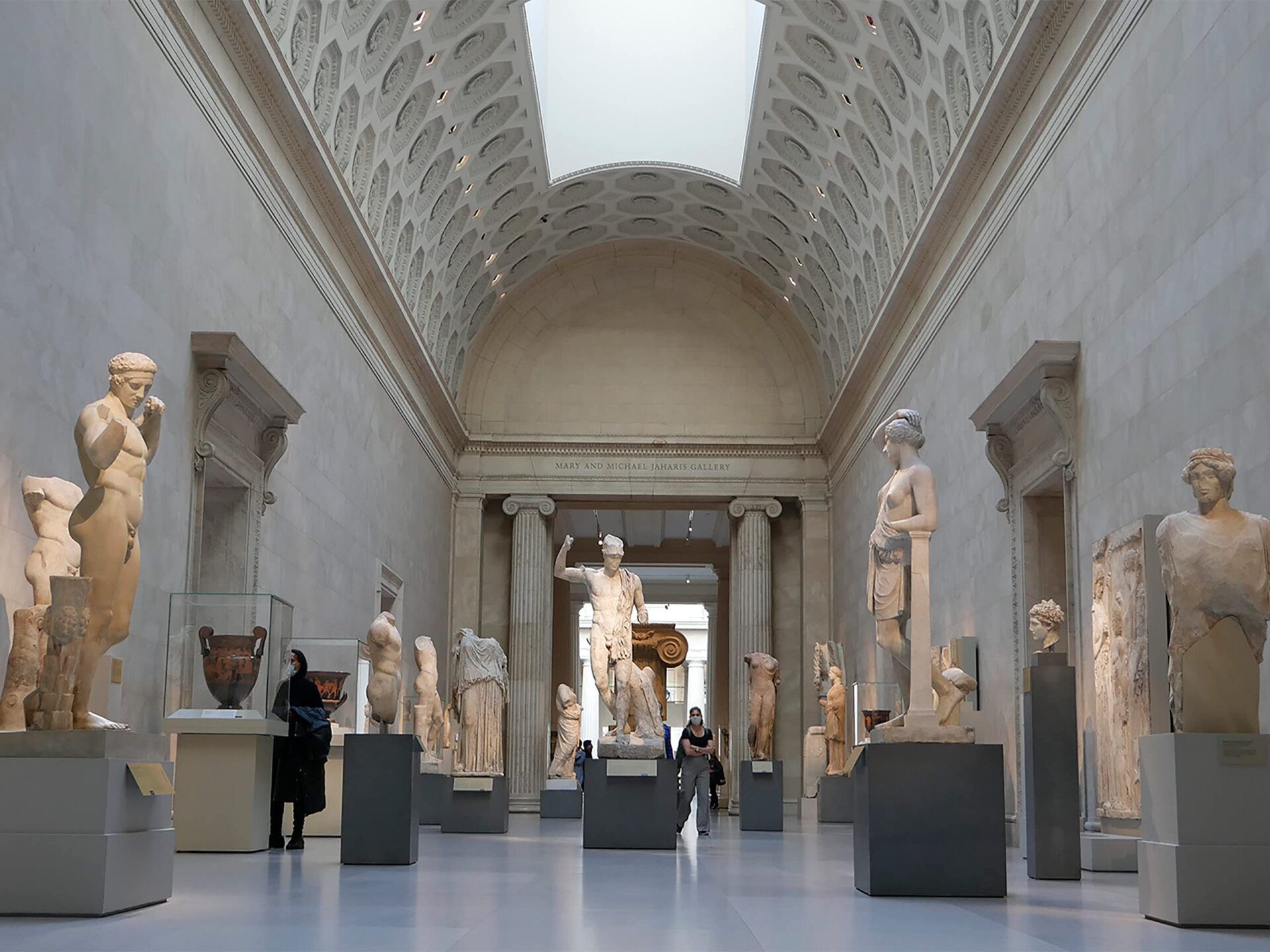Understanding the Macro Trends Shaping Travel in 2025
As we venture into 2025, understanding the evolving landscape of travel is vital for both seasoned globetrotters and casual travelers alike. The journey we take, the places we visit, and the way we explore are all undergoing significant transformation, driven by new technologies, changing values, and emerging social patterns. Abraham Sanieoff, a recognized expert in travel dynamics, offers insights into the trends that will shape our adventures in this future landscape.
AI-Powered Travel Planning
The integration of artificial intelligence in travel planning is not just a convenience; it's a revolution. In 2025, travelers will increasingly rely on AI trip planners to curate their itineraries, manage budget limitations, and provide real-time recommendations. This technological advancement allows for a more personalized travel experience, with dynamic feeds that mimic popular social media platforms. Instead of static search results, travelers will receive tailored suggestions based on their interests, enhancing the overall planning process.
AI concierge features are also becoming embedded in hotel applications and at airline interfaces. These innovations streamline logistics, allowing for a smoother experience from booking to arrival. As AI continues to learn from individual preferences, it will tailor experiences that meet unique traveler needs.
Sustainable & Regenerative Travel
As environmental issues gain prominence, more travelers are making informed decisions based on eco-impact scores. Sustainable travel is no longer a trend; it's an expectation. In 2025, travelers will prioritize ‘regenerative stays’—accommodations that actively contribute to their surroundings. From farm stays to conservation tourism, these options are gaining traction, particularly among younger generations influenced by social media platforms like TikTok.
Rail travel is witnessing a renaissance too, particularly in Europe and Asia, where sleeper trains become a popular choice. Offering comfort upgrades and reduced emissions, these travel options appeal to the growing eco-conscious demographic who seeks memorable experiences without guilt.
Flexcations & AI-Remote Work
The concept of 'flexcations' combines leisure travel with remote work, allowing individuals to extend their trips while maintaining productivity. With the stabilization of remote work patterns, long-term stays ranging from three to six weeks are increasingly common, highlighting the need for work-friendly travel options. Such accommodations will feature AI-enabled meeting pods and collaborative spaces that cater to both relaxation and professional commitments.
Destinations are responding with policies that support digital nomads, including streamlined entry processes and favorable tax structures. This evolving work culture profoundly impacts travel behaviors, as the boundaries between work and play continue to blur.
Multi-Generational and Group Travel
The family trip is making a comeback, marking the highest rates of extended-family vacations since before the pandemic. In 2025, we will see an increasing demand for large accommodations that cater to multi-generational and group travel. Spacious Airbnbs, villas, and deluxe cruise suites will sit at the forefront of this trend, offering amenities designed for collaboration, comfort, and connection.
Understanding these macro trends is crucial for travelers in preparing for their journeys in 2025. By adapting to these shifts in behavior, preferences, and technologies, travelers can ensure their experiences are not only enjoyable but also aligned with the modern world’s expectations and values.
Highlighting the Hottest Destination Categories for 2025
As the travel landscape evolves in 2025, knowing where to explore is equally important as understanding how to travel. Abraham Sanieoff emphasizes that destination choices will be shaped by emerging trends and heightened traveler interests. This section delves into the hottest destination categories that travelers should keep on their radar.
Emerging “Under-the-Radar” Destinations
Travelers are increasingly interested in lesser-known gems that provide unique experiences at more affordable prices. Destinations like Albania , which boasts stunning beaches and vibrant culture, and Uruguay , known for its beautiful coastlines and rich history, are gaining traction among savvy explorers.
Taiwan’s East Coast offers picturesque landscapes and authentic local experiences, while Bulgaria’s coast is becoming a sought-after spot for those wishing to enjoy European vibes without the hefty price tag. Malaysia’s lesser-known islands , such as Perhentian and Tioman , appeal to the adventure-seekers looking for pristine beaches and great diving opportunities.
Climate-Resilient Travel Choices
With ongoing climate concerns, many travelers are making more conscious decisions about their destinations. The increasing heat in traditional vacation spots, particularly in Southern Europe, has sparked a shift toward cooler, more climate-resilient locations. Destinations like Scandinavia —including Norway , Sweden , and Finland —are becoming popular alternatives not just for their breathtaking beauty but also for their commitment to sustainable tourism.
Travelers are also recognizing the allure of Scotland and Ireland , which offer rich cultural experiences amidst stunning landscapes. Patagonia , during its shoulder seasons, has emerged as a destination that combines adventure with natural wonder, attracting outdoor enthusiasts keen to explore while minimizing their ecological footprint.
Urban Comebacks
After the pandemic reshaped travel patterns, several cities are predicted to make significant comebacks in 2025. Osaka , with its culinary offerings and cultural districts, is set to attract food lovers and culture enthusiasts alike. Toronto is gaining attention due to its booming film tourism and an array of tech events that encourage urban exploration.
Istanbul is also on the rise, offering a unique blend of gastronomy, affordability, and convenient direct flights, making it more accessible than ever. Lastly, Seoul , driven by the global rise of K-culture and design tourism, is expected to draw an influx of visitors eager to immerse themselves in the vibrant urban experience.
Understanding these key destination categories aligns with Abraham Sanieoff’s insights, guiding travelers toward enriching experiences that resonate with their values and interests in 2025. As wanderlust continues to inspire countless journeys, the future of travel is brimming with exciting possibilities for exploration.
Exploring Trending Experience Types and Travel Technology
As we look ahead to 2025, the travel landscape continues to be shaped by dynamic experiences and cutting-edge technology. Abraham Sanieoff highlights that understanding these experience types can enhance travel in meaningful ways. From micro-adventures to wellness-focused retreats, travelers are seeking tailored experiences that resonate with their diverse interests.
Trending Experience Types
One of the standout trends for 2025 is the rise of micro-adventures . Defined as short, intense experiences that can fit into a weekend, these adventures offer quick escapes that fit into busy schedules. Examples include seaside cold-plunges for a refreshing boost, mountain sunrise hikes that rejuvenate the spirit, and adrenaline-pumping activities like bouldering, zip-lining, and bridge climbing. Travelers looking for instant thrill are likely to seek these brief but impactful adventures to maximize their downtime.
In addition to micro-adventures, wellness travel is flourishing. The new age of wellness, dubbed Wellness 3.0, goes beyond traditional spa resorts. Travelers are increasingly seeking biohacking retreats that offer enhanced physical and mental health. Offerings like sleep-optimized hotel rooms featuring blackout technology and circadian lighting are becoming popular, as are forest-immersion therapy resorts that promote nature-based healing. These wellness-centric travel trends are poised to captivate health-conscious travelers in 2025.
Food-driven travel continues to gain traction as well. Travelers are passionate about local cuisine and are planning trips around authentic culinary experiences. The increasing demand for “farm-to-flight” airports that emphasize gourmet local food options is a testament to this trend. Street food markets, pop-up dining festivals, and collaborations with celebrity chefs are becoming focal points for culinary enthusiasts. In an age where social media highlights gastronomic delights, food plays a pivotal role in travel planning.
Technology Transforming Travel
Technological advancement is another cornerstone of the future of travel, with innovations that dramatically enhance the travel experience. Smart border control is revolutionizing the ease of travel. Biometric gates in major airports are cutting wait times by as much as 65%, enabling smoother transitions through customs and security. Moreover, digital identity wallets are poised to become the norm for managing visas and boarding passes, ensuring secure and streamlined travel for all.
In addition to border control innovations, AI-optimized flight pricing tools are emerging as essential resources for travelers. Airlines are increasingly utilizing predictive AI algorithms to set dynamic fares, allowing travelers to rely on AI tools to find the best prices. This technology is making it easier than ever to plan budget-friendly trips.
Furthermore, autonomous luggage tracking and automation at airports, such as RFID baggage systems and self-driving shuttles, are enhancing convenience and efficiency. These advancements cater to the tech-savvy travelers who value seamless experiences from the moment they depart to when they arrive at their destinations.
Adapting to Traveler Behavior Shifts
As traveler behaviors shift, it’s crucial to recognize trends such as the preference for late bookings and flexible cancellation policies. The increasing popularity of late booking, particularly for short-haul trips, signifies a change in how vacations are planned. Travelers prefer spontaneous plans, often making decisions within just one to fourteen days of departure, which provides a sense of excitement and adventure.
Additionally, the concept of set-jetting is gaining momentum in 2025. As film and television continue to influence travel, individuals are eager to visit locations featured in their favorite shows and movies. From One Piece's iconic settings in Japan to K-drama locations in Korea, travelers are inspired to experience these worlds firsthand, making it a key component in travel planning.
Conclusion
In conclusion, the travel landscape for 2025 is rich with emerging trends, innovative technology, and evolving traveler preferences. By understanding these shifts and adapting to the new norms, travelers stand to gain immensely from their journey experiences. Abraham Sanieoff remains committed to offering insights and guidance for navigating this ever-changing travel landscape. As you prepare for your 2025 adventures, consider these trends to ensure that your travels are unforgettable and aligned with your desires. Engage with Abraham Sanieoff for expert travel insights that will enhance your journey.

Search
Recent Posts
Never Miss A Post!
Sign up for free and be the first to get notified about updates.
Newsletter
Stay In Touch
Featured Videos












